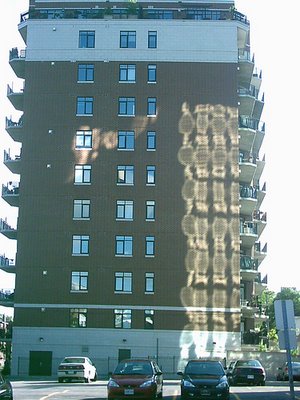Home Buyers Get a Break On Mortgage Insurance

The average home price in Canada shot up another 10 % in October, and yet there's a bit of good news on the affordability front for some home buyers.
These are the people who have less than a 25% down payment when they buy a house and thus are required to spend thousands of dollars on mortgage insurance to protect their lender against default. People in this position accounted for 42 % of the market at the end of September.
A couple of changes in the mortgage market could be money savers for people who must take out a high-ratio insured mortgage. A proposal in a package of federal banking legislation introduced Monday that would make mortgage insurance mandatory if you had a down payment of less than 20 %.
Also the pricing of mortgage insurance for people who borrow 100 % of the cost of their home. Instead of just slapping a preset premium on this type of borrowing, insurers are now factoring in the borrower's credit score in a way that can lower the cost of coverage.
This is called risk-based pricing and it's the way that almost all other types of insurance work. If you have teenagers and you have to insure your car, it's going to be expensive.
The use of risk-based pricing seems to be a result of increasing competition in the business of providing mortgage insurance. Whereas there used to be just two players, the federal government's Canada Mortgage and Housing Corp. and Genworth Financial, now there are three new players as well.
In a research note to its brokers, Invis has tracked the impact of competition, and risk-based pricing, on mortgages where the customer borrows 100 % of the price of a home. On Oct. 2, Genworth announced it would allow people to borrow 95 to 100 % of the purchase price for a premium of 3.75 % if they had a minimum credit score of 680. Credit scores are a rating of how you've kept up with your debts over the years, and they're tallied by independent credit bureaus.
Within days, a new mortgage insurance player called AIG United Guaranty said it would offer the same coverage for a premium of 3.70 % and a credit score of 680. Genworth matched that, but both were left behind when CMHC announced it would offer 100 % financing at a premium of 3.1 % to those with a credit score of 710. Back came Genworth with a premium of 3.1 % and a credit score requirement of 680.
The credit scores required here aren't exceptionally high, but if you can't meet them you'll have to pay a higher premium for your mortgage insurance. Could this trend of rewarding responsible borrowers become more prevalent in the mortgage insurance business?
Credit scores are a useful indicator of an individual's reliability as a borrower. The probability that you won't be able to pay your mortgage or go into default is somewhat linked to how much money you're able to put down [as a down payment]. But for millions and millions of individuals, those credit scores do reflect the probability of financial stress.
Ottawa's proposal to let people borrow up to 80 % of the cost of a home without requiring mortgage insurance rather than the current 75 per cent is by no means a sure thing, given the minority status of the Conservative government. Parliament has until next April 24 to consider the proposal.
The savings would be modest but not insignificant if the legislation is passed, given that you currently pay a mortgage insurance premium of 0.65 % if you fall a bit short of a 75 % down payment. On a $250,000 mortgage, you'd save roughly $2,725 on mortgage and interest over 25 years, assuming a 5.45 % interest rate.
Short of a retreat in house prices, the best bet for improved affordability for home buyers would seem to be further competition between mortgage insurers. Another small example of this kind of savings: People who need mortgage insurance no longer have to pay an application fee of $165. No doubt you can find something better to do with that money if you've just bought a home.

















